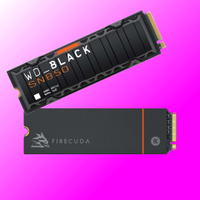This 21 SSD add-in card should sort you out for game storage for at least a decade
Maybe this massive storage card is the true meaning of the term 'future-proofing'.

We've come to expect some real mighty storage hogs gobbling up gigabytes over the years, but maybe there's an answer. No it's not game developers making their games any smaller, don't be silly. It's loading up 21 M.2 SSDs across a single add-in card, such as this Apex Storage X21.
This enormous add-in card houses up to 168TB of speedy storage (via Tom's Hardware). By my very complex calculations, that's enough space to install Microsoft Flight Simulator 1,400 times, but it would require 21 8TB SSDs. If you're using Sabrent's Rocket 4 Plus 8TB drives, that will set you back around $21,000—maybe you can get a bulk discount or something? That's without the price of the Apex Storage X21, which isn't listed on Apex Storage's site.
All the speeds and feeds are, though. The Apex Storage X21 offers up to 30.5GB/s sequential read speeds and 26.5GB/s sequential write speeds. In terms of IOPS, that's 7.5M read and 6.2M write. That's certainly quick enough for most of our humble gaming needs, but clearly this is kit intended for more data centre-focused deployments.
Still, there's no one to tell you that you can't plug one of these babies into your gaming PC. You wouldn't need to load it up with the most expensive, $1,100 a pop 8TB drives. Some of the best SSDs for gaming are 1/10th of that price for a quarter of the capacity.
The add-in card will work just fine with Windows 10/11 and Linux, too, and takes up just one PCIe 4.0 x16 slot in your machine. Cooling might be a factor to consider, though. There's a heatsink to keep the onboard processing cool, which in turn keeps the load entirely on the card and off your CPU, but none of the drives are independently cooled. Some do appear to be sandwiched close together, as this add-in card has four different planes loaded up with SSDs to hit that 21 drive total.
So add a heap of fans to your shopping list, too. All together this is one expensive upgrade, but, hey, if PC gaming isn't overkill, what is?
Best SSD for gaming: The best solid state drives around
Best PCIe 4.0 SSD for gaming: Speedy drives
The best NVMe SSD: Slivers of SSD goodness
Best external hard drives: Expand your horizons
Best external SSDs: Fast, solid, and portable
Keep up to date with the most important stories and the best deals, as picked by the PC Gamer team.

Jacob earned his first byline writing for his own tech blog. From there, he graduated to professionally breaking things as hardware writer at PCGamesN, and would go on to run the team as hardware editor. He joined PC Gamer's top staff as senior hardware editor before becoming managing editor of the hardware team, and you'll now find him reporting on the latest developments in the technology and gaming industries and testing the newest PC components.


